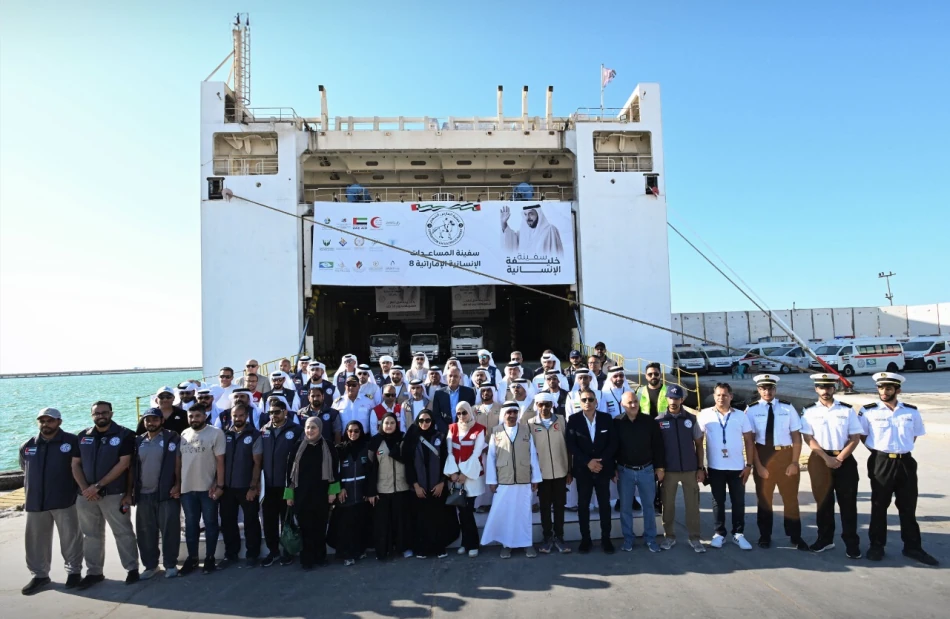
UAE's Humanitarian Vessel Docks at Al-Arish Port, Delivering Essential Aid
UAE Delivers Eighth Humanitarian Ship to Gaza as Regional Aid Efforts Intensify
The United Arab Emirates has dispatched its eighth humanitarian vessel, the "Khalifa Humanitarian Ship," carrying over 7,000 tons of critical supplies to Gaza via Egypt's Al-Arish port. This latest delivery under "Operation Gallant Knight 3" brings the UAE's total aid contribution to Palestinian territories beyond 80,000 tons, positioning the Gulf nation as one of the most significant non-governmental donors in the current crisis.
Strategic Aid Distribution Through Egyptian Corridor
The vessel arrived at Al-Arish port with a carefully curated cargo manifest designed to address Gaza's most pressing needs. The 7,166-ton shipment includes 4,372 tons of food supplies, 1,433 tons of shelter materials, 860 tons of medical supplies, and 501 tons of health-related materials. Egyptian officials and UAE Red Crescent Secretary-General Ahmed Sari Al Mazrouei oversaw the handover, highlighting the coordinated regional response.
Egypt's Al-Arish port has emerged as the primary humanitarian gateway to Gaza, with Cairo facilitating multiple international aid operations. This arrangement demonstrates how regional powers are navigating complex geopolitical constraints while maintaining humanitarian corridors.
UAE's Calculated Humanitarian Diplomacy
The UAE's sustained aid campaign reflects a broader strategic approach to Middle Eastern engagement that has characterized Emirati foreign policy since the Abraham Accords. By maintaining humanitarian support for Palestinians while preserving diplomatic relations with Israel, the UAE positions itself as a stabilizing force capable of bridging traditional regional divides.
Scale and Consistency Set UAE Apart
With 80,000 tons of aid delivered across eight vessels, the UAE's contribution rivals that of much larger economies. This volume places Emirati assistance on par with major international donors, despite the country's relatively small population of 10 million. The systematic nature of these shipments—launched from Abu Dhabi's Khalifa Port under a branded operation—suggests a long-term commitment rather than reactive crisis response.
Regional Implications for Gulf States
The UAE's prominent humanitarian role may influence other Gulf Cooperation Council members to expand their own aid efforts. Saudi Arabia and Qatar, despite their recent diplomatic reconciliation, have taken different approaches to Palestinian support. The UAE's model of high-visibility, logistically sophisticated aid delivery could become the regional standard for crisis response.
Economic and Diplomatic Returns
For the UAE, these humanitarian efforts serve multiple strategic purposes beyond immediate relief. The operations enhance the country's international reputation as a responsible regional power, potentially supporting its broader economic diversification goals and positioning for future diplomatic initiatives. The consistent branding of operations and vessels also reinforces the UAE's image as an efficient, modern state capable of large-scale humanitarian logistics.
As regional tensions continue, the UAE's approach demonstrates how Gulf states can maintain influence through humanitarian leadership while navigating complex political relationships across the Middle East.
Most Viewed News

 Sara Khaled
Sara Khaled






